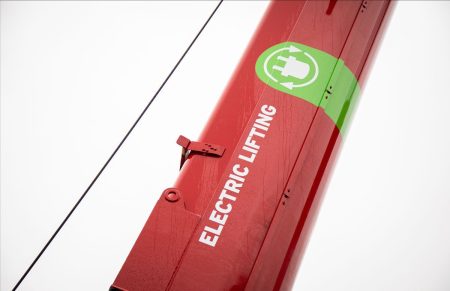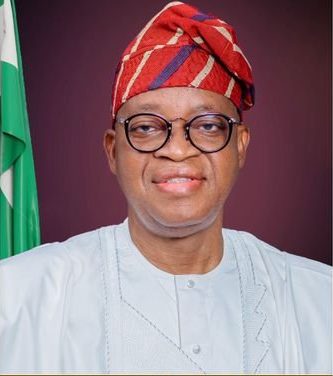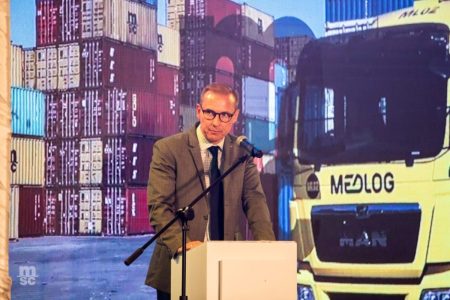
23 September 2013, Lagos – The Nigeria National Petroleum Corporation (NNPC) has expressed interest in being integrated to the Single Window (SW) platform of the Nigeria Customs Information System (NICIS).
This was revealed in a memo sighted by Vanguard, which reads in part, “NNPC has expressed its interest in being integrated to the Single Window platform in order to have the possibility to input additional risk management information.”
The modernisation project of the Nigeria Customs Service (NCS) which the Federal Government contracted to Webb Fontaine has placed the service on a pedestal that can make it compete with any other Customs organisation in the world. The project has also upgraded the Automated System of Customs Data (ASCUDA) which is being replaced by the Nigeria Customs Information System (NICIS) that will allow for the quick clearance of cargoes and facilitate trade.
NICIS will also allow the Customs to deal with various publics electronically just as the trading public can also access the Customs electronically.
The NICIS project according the Managing Director of Webb Fontaine, Mr. Muktar Ahmed is actually meant to facilitate trade and quicken the clearance of cargoes from the ports.
Currently, more than 19 government agencies are inter-connected to the Customs’ NICIS, while 20 others are making efforts to get connected.
Besides the inter-connectivity of the various government agencies, all the commercial banks in the country have also been inter-connected with a view to confirming payments made by importers electronically.
The terminal operators, the scanning service providers, 67 cafes and airline agents are now expected to deal or transact their businesses with Customs service electronically.
The NICIS will also make importers and agents to be more computer literate as online transactional Customs clearance processing will eliminate the human contact between agents and Customs.
Virtually all the connected agencies have done so via secured licensed radio link to NICIS National Private Telecommunication Network node in Abuja but CBN is currently setting up a new optical fibre link to NICIS.
The CBN seems to be at the centre of the entire modernisation project as they issue a form ‘M’ number between the NCS, scanning service providers and the banks.
The CBN’s involvement will also create an automated alerts on expired and overused/unused forms M. The NICIS will also make it easy for the tracking of all Customs operations, electronic payments and remittances.
Some of the agencies that are currently connected to the NICIS include the Standards Organisation of Nigeria (SON), Central Bank of Nigeria (CBN), Federal Inland Revenue Service, Nigerian Ports Authority (NPA), Nigerian Maritime Administration and Safety Agency (NIMASA), Nigerian Bureau of Statistics (NBS) and the office of the National Security Adviser.
NIMASA is about the only agency that is connected to the NICIS National Data Centre through a radio link in Apapa.
Others are the Nigeria Financial Intelligence Unit (NFIU) of the Economic and Financial Crimes Commission (EFCC), Federal Airports Authority of Nigeria (FAAN), the Federal Ministry of Finance and Nigerian Postal Service (NPS).
The National Insurance Commission, Nigerian Export Promotion Council, Nigeria Investment Promotion Commission (NIPC), National Drug Law Enforcement Agency (NDLEA) Nigerian Civil Aviation Authority (NCAA), Nigerian Communications Commission (NCC), and Manufacturers Association of Nigeria (MAN) Ministry of Trade & Investment (MOTI) are also making efforts to inter-connect. Ahmed explained that the inter-connectivity of other agencies to the information technology of the Customs service has also assisted importers to take quick delivery of their cargoes adding that the essence of the modernisation project was actually to facilitate trade.
Explaining further, Ahmed said that the NICIS will assist importers in doing their businesses electronically, a function the ASYCUDA system could not perform.
“When the contract was signed, the four main agencies that were targeted were the Central Bank of Nigeria, Nigeria Customs Service (NCS), Federal Ministry of Finance and the Nigerian Bureau of Statistics (NBS) but in the course of the project, we now realised that in international trade, everything is going towards a single window direction and so Web Fontaine sold the vision to Government that other agencies can come under one single platform.”
Ahmed also said that Web Fontaine has brought its expertise to bear through the introduction of its Trade World Manager (the engine of the NICIS) to perfect the entire modernisation of the Nigeria Customs Service.
Speaking on the need to eliminate the issue of human element that seems to breed corruption in the port industry, Chairman of the Port Consultative Council (PCC), Otunba Kunle Folarin said that the modernisation of the port system should not be limited to Customs alone adding that it should be holistic so Nigerians can feel the impact.
He explained that the modernisation should be done to other stakeholders so as to have everybody on the same platform.
The maritime labour expert said the project will enhance the 48 hours cargo clearance time that the government is trying to achieve.
– Godwin Oritse, Vanguard



